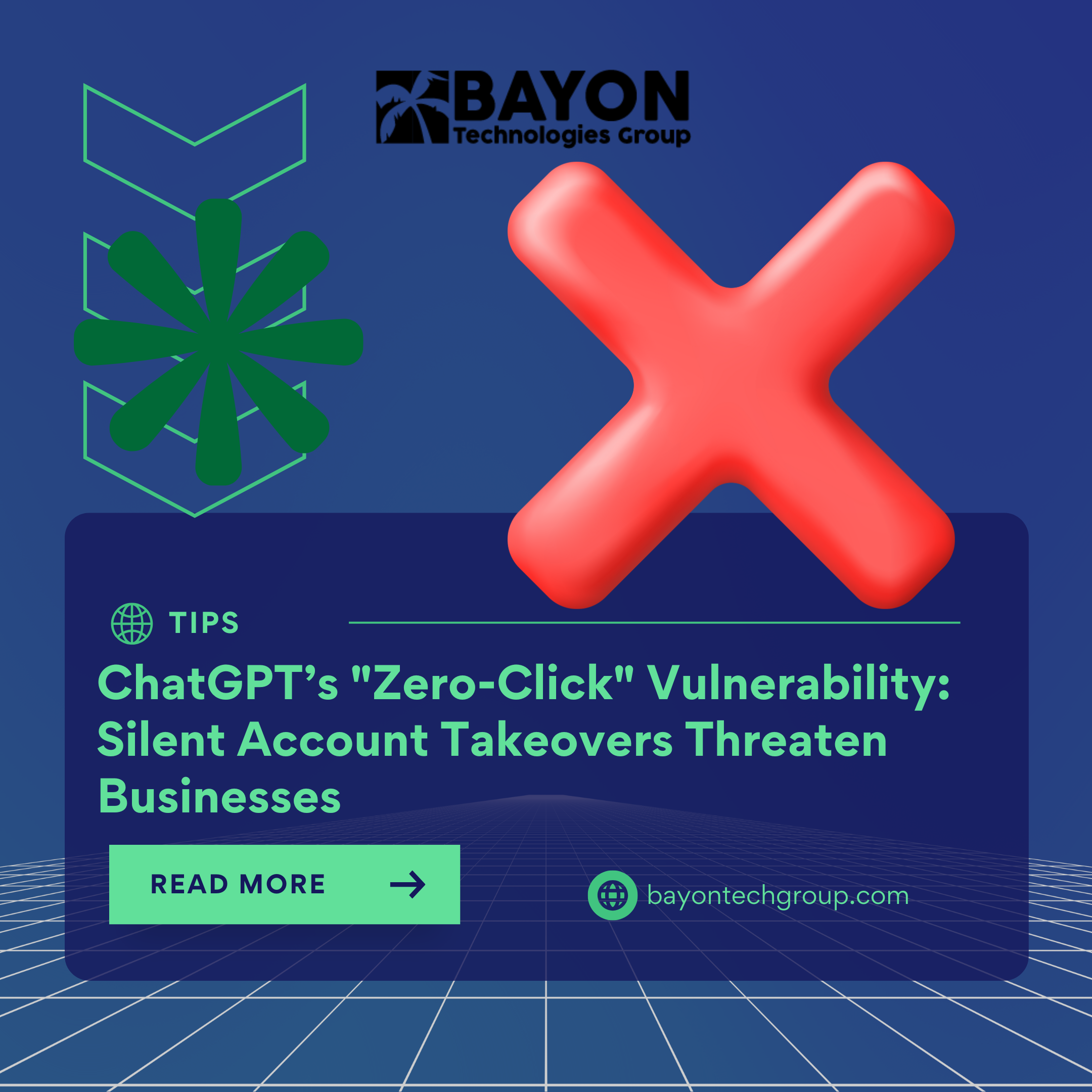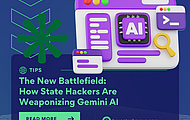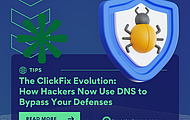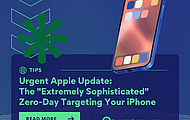ChatGPT’s "Zero-Click" Vulnerability: Silent Account Takeovers Threaten Businesses

A serious weakness in OpenAI's ChatGPT, known as a "zero-click" vulnerability, made it possible for hackers to take over accounts without any user input. Now that it has been patched, this high-severity attack highlights concerning concerns as AI tools are incorporated into corporate processes.
How the Attack Worked
- Malicious File Trigger
Hackers sent specially crafted files (e.g., PDFs, images) containing hidden scripts.
- Automatic Execution
When previewed in ChatGPT, these files triggered code execution without clicks or downloads.
- Account Compromise
Attackers stole session tokens, gaining full access to:
- Chat histories
- Uploaded files
- Billing information
- Connected apps (Google Drive, Microsoft 365)
Real Impact: A finance team’s ChatGPT account was breached via an infected invoice PDF, exposing budget forecasts and merger plans.
The Reasons This Vulnerability Was So Serious
- There Was No Need for a User Error: Unlike phishing, victims did not have to download files or click links.
- Cross-Platform Access: The stolen tokens were compatible with many devices and browsers.
- Supply Chain Risks: Attackers switched to SaaS tools and connected cloud storage.
Businesses at Greatest Risk
- ChatGPT is used by teams at the highest-risk businesses to analyze data (financial and HR papers).
- Code snippets shared by developers
- Marketing divisions keeping track on marketing tactics
Four Crucial Steps in Mitigation
- Ensure all ChatGPT accounts are using the most recent patched version immediately.
- Session Token Revocation
- In ChatGPT settings, reset active sessions.
- Examine Linked Apps
- Eliminate any integrations that are not in use, such as Slack and Google Drive.
- Separate Sensitive Information
- Never give generative AI tools access to private files.
Beyond the Patch: Lasting AI Security Risks
This exploit underscores a larger threat: AI platforms are becoming high-value attack surfaces. Future risks include:
- Training data poisoning, manipulating AI outputs
- Prompt injection stealing proprietary workflows
- Model theft cloning custom enterprise AIs
Bayon Technologies Group: Secure Your AI Adoption
AI tools like ChatGPT boost productivity—but unmanaged, they invite disaster. Bayon Technologies Group delivers enterprise-grade protection:
✅ AI Security Audits: Identify vulnerabilities in your AI tool stack.
✅ Zero-Trust Access Controls: Enforce strict data permissions for AI platforms.
✅ Employee Training: Simulate AI phishing/exploit scenarios.
✅ 24/7 Threat Hunting: Detect token theft and anomalous AI activity.
Don’t let AI efficiency become your biggest breach vector!
‹ Back







